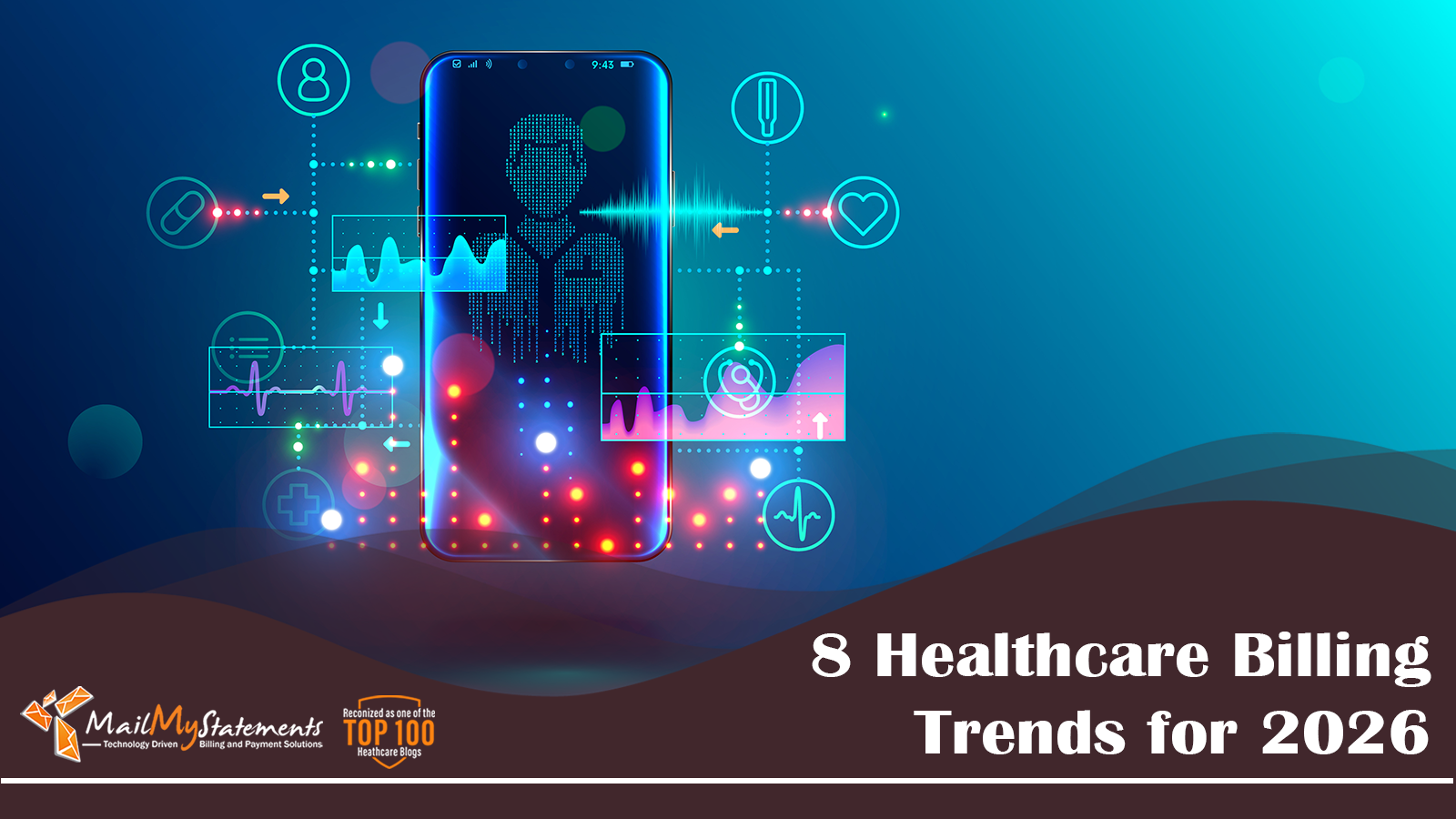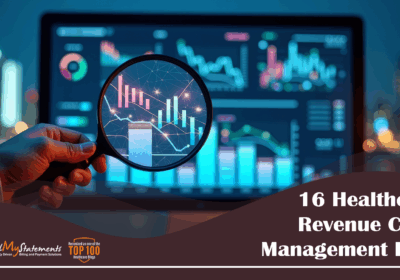8 Healthcare Billing Trends for 2026

The healthcare industry is changing faster than ever. New technologies are redefining efficiency, while shifting regulations are redrawing the rules of patient billing. These forces are creating a high-stakes environment where adaptability isn’t optional; it’s essential.
To thrive amid this rapid evolution, healthcare leaders must stay alert to emerging trends that will shape the financial health of their organizations for years to come.
1. The Rise of Artificial Intelligence Continues
The integration of artificial intelligence (AI) into healthcare billing has accelerated significantly in recent years, revolutionizing administrative processes and enhancing accuracy. As we look ahead to 2026 and beyond, the impact of AI on healthcare billing is poised to grow even more profound.
AI-powered software can process vast datasets at unprecedented speeds, identifying complex patterns and anomalies that would be difficult, if not impossible, for human billers to detect. This capability leads to a significant reduction in human error, resulting in more accurate claims, faster reimbursements, and improved financial performance for healthcare providers. Additionally, AI can streamline administrative tasks, such as eligibility verification and prior authorization, freeing up valuable staff time to focus on patient care.
Furthermore, AI-driven chatbots and virtual assistants can provide real-time patient support, answering billing inquiries and resolving issues efficiently. This not only enhances patient satisfaction but also reduces the administrative burden on healthcare organizations. As AI technology continues to evolve, we can expect to see even more innovative applications in healthcare billing, driving efficiency, accuracy, and improved patient experiences.
2. Increased Healthcare Billing Automation
The rise of artificial intelligence has catalyzed a broader trend toward automation in healthcare billing. Advanced autonomous coding and billing systems are revolutionizing the industry, enabling faster, more accurate claim submissions and significantly reducing the risk of human error. Additionally, the automation of patient eligibility verification streamlines the process of determining insurance coverage, minimizing the likelihood of denied claims and enhancing revenue cycle management.
While automation may initially raise concerns about job displacement, its implementation often leads to improved efficiency and frees up staff to focus on higher-value tasks, such as patient care and complex billing scenarios. Furthermore, automation within cloud-based billing systems support flexible work arrangements, contributing to greater employee satisfaction and work-life balance. By embracing automation, healthcare organizations can optimize their billing processes, enhance financial performance, and deliver superior patient experiences.
3. Growing Importance of Data Analytics
The proliferation of electronic health records and digital healthcare systems has created a wealth of patient data that can be harnessed to inform strategic decision-making. In 2026 and beyond, healthcare organizations will increasingly prioritize the application of data analytics to optimize their billing processes and drive revenue growth.
By analyzing vast datasets, providers can identify areas for improvement, such as common coding errors or underutilized services, and implement targeted interventions to enhance efficiency and accuracy. Additionally, data analytics can reveal trends in payment patterns, insurance reimbursements, and patient outcomes, providing valuable insights for shaping future policies and strategies. As the healthcare industry shifts towards value-based care models, data analytics becomes indispensable for demonstrating the quality and effectiveness of care delivered.
4. Changing Healthcare Billing Regulations
The healthcare industry is under increasing pressure to address rising costs and concerns about fraud. In response, we anticipate a tightening of regulatory oversight in 2026, including more stringent auditing practices and frequent updates to billing guidelines.
To maintain compliance with these evolving regulations, healthcare organizations must prioritize the development and maintenance of robust compliance programs. These programs should encompass regular audits, staff training, and ongoing monitoring of regulatory changes. By proactively addressing compliance requirements, organizations can mitigate risks, protect their financial interests, and ensure the integrity of their billing operations.
5. Patient-Centric Healthcare Billing
As patients assume a greater share of healthcare costs, the demand for transparency and convenience in billing processes has intensified. This trend is driving a shift towards more patient-centric healthcare billing practices.
To meet the evolving expectations of consumers, providers must prioritize clear and understandable billing statements, paperless SMS communication options, and flexible payment arrangements. Additionally, investing in technology that empowers patients to manage their accounts online is essential. By focusing on the patient experience, healthcare organizations can enhance satisfaction, improve payment rates, and foster stronger relationships with their patients.
6. Blockchain Billing Technology
Beyond its association with cryptocurrencies, blockchain technology is emerging as a promising tool for the healthcare industry. As we look ahead to 2026, we can anticipate further innovation and potential adoption of blockchain for medical billing and claims processing.
By leveraging a decentralized ledger system, blockchain offers enhanced security and transparency in billing transactions. This technology can help mitigate the risk of fraud and ensure data integrity. As Oracle suggests, blockchain can create a “single source of truth” that facilitates interoperability and accessibility for both healthcare providers and insurance companies, streamlining information sharing and reducing administrative burdens.
7. Increased Emphasis on Cybersecurity
The increasing reliance on digital systems for healthcare billing has elevated cybersecurity concerns. As organizations transition to electronic records and cloud-based platforms, they become more vulnerable to cyberattacks, posing a significant risk to patient data privacy and financial stability.
In 2026 and beyond, we anticipate a heightened focus on cybersecurity measures within the healthcare industry. Patients will increasingly demand that providers implement robust safeguards to protect their sensitive information. To mitigate the risk of data breaches and avoid costly fines, healthcare organizations must prioritize cyber-resilience. This involves implementing stringent access controls, conducting regular security audits, and investing in advanced security software. Proactively addressing cybersecurity threats will help providers safeguard patient data, protect their reputation, and maintain the trust of their patients.
8. Telemedicine Is Here to Stay
While the COVID-19 pandemic may have accelerated the adoption of telemedicine, its enduring value as a healthcare delivery model is evident. Although in-person visits will remain essential for certain medical needs, patients increasingly appreciate the convenience and accessibility of virtual care.
As telehealth becomes a more integral part of the healthcare landscape, providers must adapt their billing processes to accommodate these services effectively. This necessitates updating coding and billing guidelines to accurately capture telemedicine encounters and implementing technology that supports the efficient billing of virtual services. Embracing these changes will allow healthcare organizations to capitalize on the benefits of telemedicine while ensuring financial sustainability.
The Bottom Line
Staying at the forefront of healthcare billing trends will allow providers to optimize their operations, reduce administrative burdens, and ultimately focus more on delivering high-quality patient care.
By partnering with MailMyStatements, you can provide your patients with a streamlined digital billing process and free up your staff’s time to offer more personalized customer service. Contact us today to learn more.
![]()



